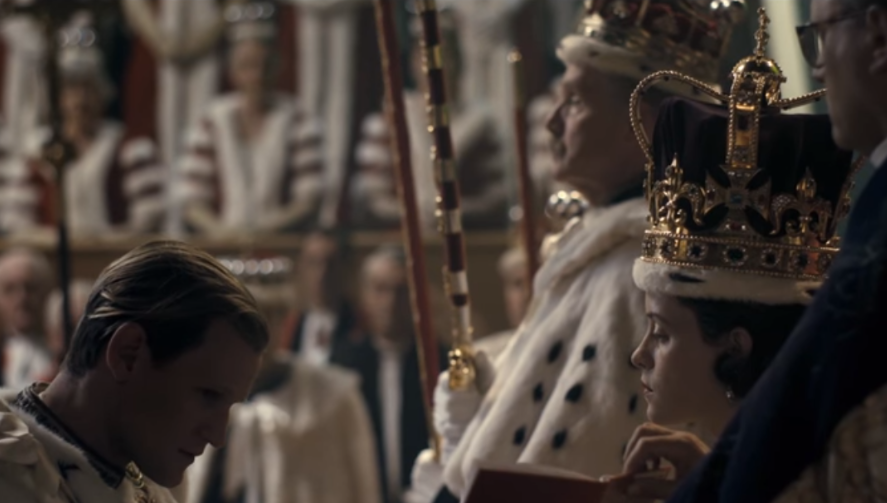A Crown filmsorozat egyik jelenete megtestesíti számomra, hogy mi volt II. Erzsébet királynő. A jelenet a koronázási szertartás, amelynek egy pontján Fülöp herceg térdet hajt a királynő előtt. Ezt a filmben megelőzi kettejük közt egy nehéz beszélgetés: Fülöp az ellenérzését fejezi ki azzal kapcsolatban, hogy férfiként engedelmességet fogadjon a feleségének. Ezt a házasságukban Erzsébet sem tartja helyesnek, de Fülöptől mégis azt kéri, hogy tegye meg a gesztust. „Nem előttem, hanem a korona előtt fogsz letérdelni.” És amikor Fülöp másnap valóban térdet hajt a korona előtt, nem Lilibet, hanem Isten előtt hajol meg. Bizonyos szempontból ez a gesztus a monarchia lényege. Ez volt II. Erzsébet lényege. A világegyetem akkor is királyság, ha a földön demokrácia van. A királynő a maga anakronizmusával olyan volt, mint egy újra és újra meghajtott térd. Egy egészen máshogy meghajtott térd.




https://www.affinity.org.uk/blog/queen-elizabeth-ii-has-died/
Egyik karácsonyi beszédét így fejezte be: “I often think that the message of Christmas is best summed up like this: ‘He came to his own, but his own did not receive him. But to all who received him, who believed in his name, he gave the right to become children of God’.”
„………… A világegyetem akkor is királyság, ha a földön demokrácia van. ……….”
E világegyetem királyainak Királya és urainak Ura a Bárány (Jel. 17:14/ Jel. 19:16), akit Isten felmagasztalt, és ajándékozott neki oly nevet, amely minden név fölött való; (Filippi 2:9), Hogy Jézus nevére minden térd meghajoljon, mennyeieké, földieké és föld alatt valóké (Filippi 2:10) És minden nyelv vallja, hogy Jézus Krisztus Úr az Atya Isten dicsőségére.” (Filippi 2:11)
A 2017-es karácsonyi beszédben pedig a következő hangzott el:
‘We remember the birth of Jesus Christ whose only sanctuary was a stable in Bethlehem. He knew rejection, hardship and persecution; and yet it is Jesus Christ’s generous love and example which has inspired me through good times and bad.’
Azután 2019-ben:
‘But in time, through his teaching and by his example, Jesus Christ would show the world how small steps taken in faith and in hope can overcome long-held differences and deep-seated divisions to bring harmony and understanding. Many of us already try to follow in his footsteps.’
Végül a legutóbbiban, most már a legutolsóban:
‘It is this simplicity of the Christmas story that makes it so universally appealing, simple happenings that formed the starting point of the life of Jesus – a man whose teachings have been handed down from generation to generation, and have been the bedrock of my faith.’
Nem föltételezem, hogy tudatos terv lett volna emögött – mintha spontán módon válnék egyre személyesebbé, egyre mélyebbé…
Azt hiszem Paul Kingsnorth II. Erzsébet királynő temetése kapcsán megfogalmazott gondolatai rezonálnak az itteniekkel:
„The point of the model of sacral kingship is that all true power resides in and emerges from the great, mysterious, unknowable, creative power at the heart of the universe – the power which we call, for want of a better word, ‘God.’ Any power that the monarch may exercise in this temporal realm is not ultimately his or hers. At the end of the funeral today, the orb and the sceptre, symbolising the Queen’s spiritual and temporal authority, were removed from the top of her coffin, along with the crown, and given over to the care of the church. At that point, Elizabeth became symbolically what she had always been in reality, and we all are – small, ordinary people, naked before God.
…
I am thinking that there is a throne at the heart of every culture, whether we know it or not, and that if we cast out its previous inhabitant – and the entire worldview that went along with it – we had better understand what we plan to replace it with. Someone, or something, is going to sit on that throne whether we know it or not. I can’t think of any societies in history which have believed – as ours does – that all that matters is matter. That nothing resides above the spires of the Abbey. That there is no throne. If there were any cultures like that – well, they didn’t last to tell us about it.”
https://paulkingsnorth.substack.com/p/intermission-last-post-for-christian